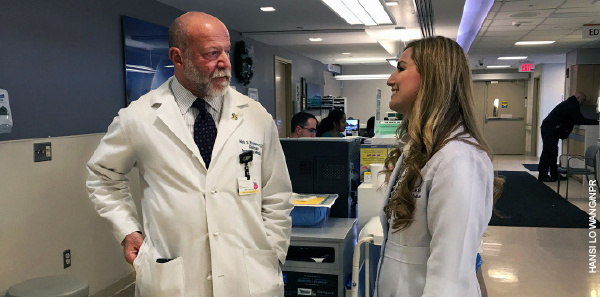
Explore This Issue
ACEP Now: Vol 37 – No 04 – April 2018Two emergency medicine opioid bills that ACEP was heavily involved in developing were recently introduced in Congress. The “Alternatives to Opioids (ALTO) in the Emergency Department Act” would provide $30 million (over three years) to establish a demonstration program to nationally test the ALTO protocol developed at St. Joseph’s Regional Medical in Paterson, New Jersey, by Dr. Rosenberg and Alexis M. LaPietra, DO, medical director of emergency medicine pain management at St. Joseph’s. The program uses alternative pain management protocols to limit the use of opioids in the emergency department. Additionally, the “Preventing Overdoses While in Emergency Rooms (POWER) Act” would provide $50 million (over five years) in grants to establish policies and procedures for administering medication-assisted treatment (MAT) in the emergency department to opioid overdose patients with subsequent referral to community providers.
ACEP President, Paul Kivela, MD, MBA, FACEP, was formally invited by the National Academy of Sciences (NAS) to participate in a panel to discuss “Leading Changes at the Ground Level” of clinical medicine/healthcare administration at the workshop titled, “Engaging the Private Sector Health Care System in Building Capacity to Respond to Threats to the Public’s Health and National Security.” Dr. Kivela worked with ACEP‘s EMS and Disaster Sections for his discussions.
Pages: 1 2 | Single Page





No Responses to “How Is ACEP Directly Affecting Your Practice?”